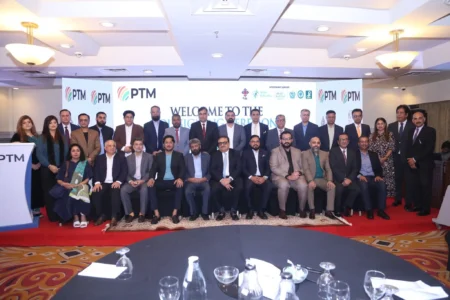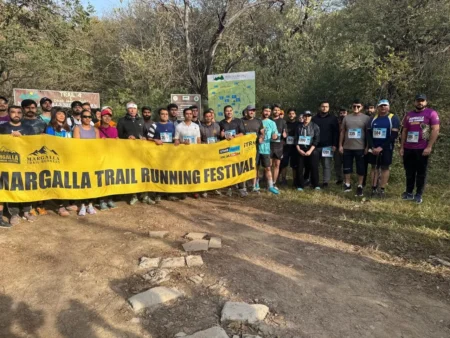CANCUN: More than 600 leaders from travel, government, the private sector and media are gathered in Cancun for the World Travel and Tourism Council’s Global Summit, the organization’s first in-person event since 2019. Thousands more are participating online.

Throughout the first day of sessions with speakers ranging from outgoing WTTC Chair and Hilton CEO and President Chris Nassetta to incoming Chair and Carnival Corporation CEO Arnold Donald and Airbnb founder and CEO Brian Chesky, common themes emerged about what it will take for the industry to emerge from the devasting effects of the COVID-19 pandemic.
According to the WTTC, in 2020 the global travel and tourism sector lost almost $4.5 trillion with more than 62 million jobs lost.
In his opening remarks, Nassetta urged fellow travel leaders to collaborate to “propel the industry forward.”
Calling the fast developing of vaccines a “modern miracle,” Nassetta says now the industry must push for re-opening, aided by technology.
“Our sector needs to lead the way in advocating internationally for the opening of borders and common sense approaches to ensure safety and consistency at every step of the traveler journey as we progress through this recovery. We can do this. We can open borders. We can get people moving. We just have to be intelligent and coordinated in how we do it,” he said.
Later in the day, in a taped interview, Airbnb CEO Brian Chesky echoed that need for collaboration and announced the company now has agreements with more than 100 destination marketing organizations across more than two dozen countries. The partnerships are part of an initiative Airbnb launched in June 2020 to support local economic recovery efforts with a focus on rural communities.
But many speakers expressed concern that lack of consistency and clarity in messaging is hampering the recovery in markets around the world.
During a panel discussion, Carnival’s Donald called for a “science-based, uniform approach” in policies from stakeholders within each country, such as health ministries, transportation departments and tourism sectors, and from one country to create the consistency that is needed for travelers to feel secure.
Rita Marques, Portugal’s tourism secretary, says the travel and tourism industry must push global health leaders to provide clarity.
“We still have a huge barrier to overcome – it’s the perception of the risk,” Marques says.
“Health authorities are in the pilot seat. We have to have a clear message from the World Health Organization saying that traveling doesn’t bring any extra risk as long as you comply with the rules,” he said.
During a panel on rebuilding traveler confidence, Fernando Valdes Verelst, Spain’s tourism secretary, says in May the country will do a pilot program of a digital certificate in all 46 of its airports and expects to open its borders to international visitors in June.
And Marian Muro, DG Turisme de Barcelona, says her city is working to develop new marketing content and new digital tools so it will be ready to welcome visitors.
“We had been more concerned about promotion than promotion and management. Now we are in the stage of promotion and management and digital tools will help us. So whenever a visitor comes to Barcelona, the visitor will be automatically be connected to tools to help them know how many people are there in any attraction or the safety measures or whether there is a queue and offer alternatives or will tell the tourist to visit later,” she says.
“The city will accomplish two things, first to give a better service to those visitors and second to give a better quality of life to residents.”




